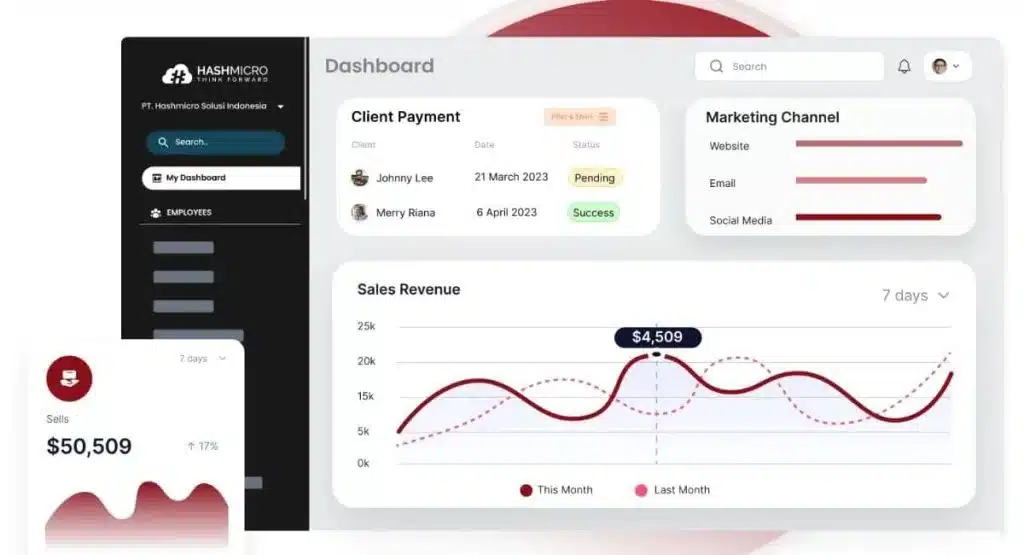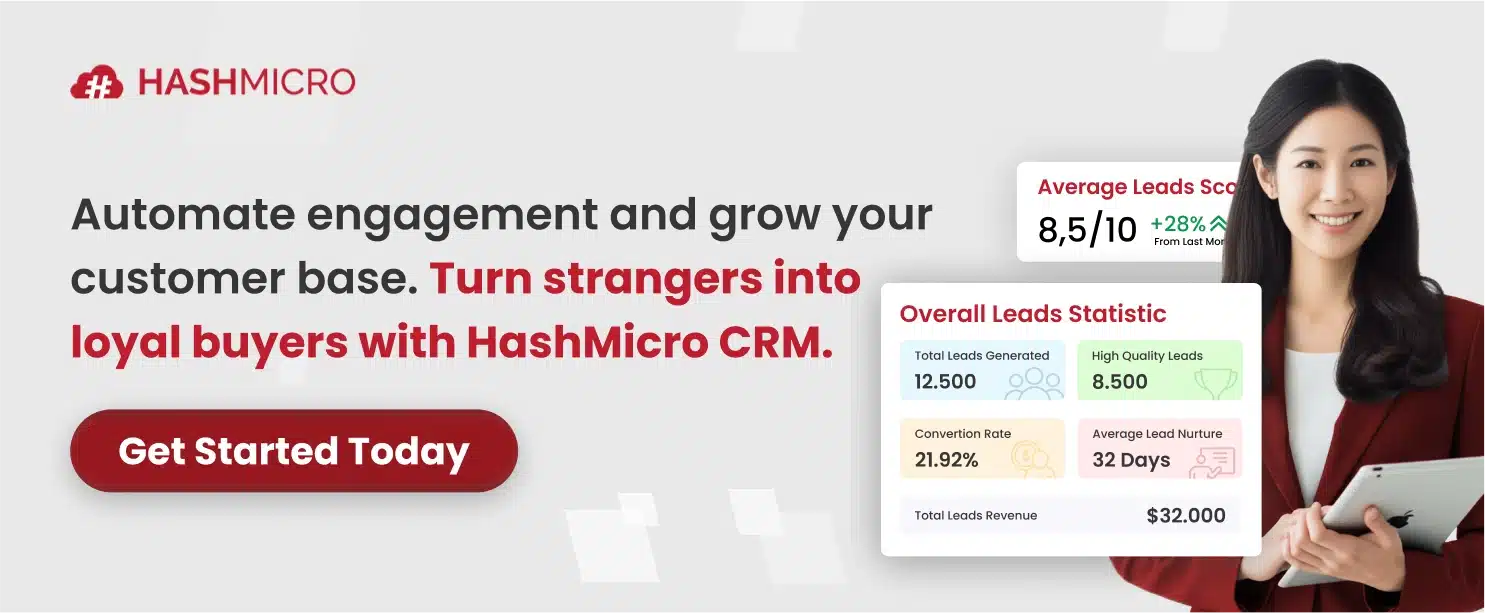Did you know that 74% of marketers say converting leads into customers is their top priority, yet only 16% feel “very successful” at nurturing leads throughout the buying journey? Many businesses struggle to keep leads engaged long enough to convert, as potential buyers often visit a site, show interest, and then disappear without returning.
According to A survey of 632 B2B buyers by Gartner, companies with a structured lead nurturing strategy are 2.5 times more likely to report strong sales pipeline growth. This is especially critical in high-competition markets like Singapore, where digital consumers expect timely and personalized communication at every touchpoint.
However, the challenge is how businesses manage relationships with leads over time. Many rely on quick conversions, neglecting trust and value during the buyer’s journey. Without a structured approach, prospects may lose interest or switch to competitors with a better experience.
A strong lead nurturing strategy is essential. Therefore, by guiding prospects with personalized, well-timed interactions, companies can boost engagement, shorten sales cycles, and improve conversion rates. This article will cover what lead nurturing is, why it matters, real examples, and actionable tips to nurture leads more effectively.
Key Takeaways
|
What Is Lead Nurturing?
Lead nurturing builds relationships with potential customers through relevant content and timely communication. Rather than pushing for quick sales, it guides prospects by addressing their challenges. In this way, lead nurturing educates and engages leads to earn their trust and loyalty.
Key Aspects of Lead Nurturing

To create an effective lead nurturing experience, several components must work together, from segmentation to personalization and ongoing customer engagement. Each aspect plays a role in ensuring leads move confidently through the buyer’s journey while staying connected to your brand.
1. Segment your messaging with intention
A strong lead nurturing strategy begins with smart segmentation. By organizing contacts based on role, industry, or stage in the sales cycle, you can deliver more relevant content. This approach boosts engagement and helps reduce unsubscribes from generic messaging.
2. Nurture both prospects and customers
Lead nurturing isn’t limited to prospects. After a sale, it’s equally important to support customers through tailored onboarding content. Whether you’re addressing executive sponsors or end users, customizing communication helps deepen trust and encourage long-term loyalty.
3. Use behavior and timing to your advantage
The best times to increase interaction are when someone first engages or converts. Harvard Business Review (2011) shows leads contacted within an hour have 7x higher conversion rates. With the help of CRM software and data, you can monitor user behavior and tailor your follow-ups to keep leads warm and moving forward.
4. Personalize every step of the way
Each message should feel personal. 80% of consumers prefer tailored experiences that address buyers’ needs, capture attention, and build loyalty. Use names, company details, and relevant insights. If the message doesn’t clarify “What’s in it for the buyer?”, it may lack enough value.
5. Build trust with progressive profiling
Instead of collecting all lead data upfront, gather small pieces over time. Start with no-form resources, then offer gated content like case studies or demo access. Gradual profiling builds a detailed contact record while respecting the lead’s time and preferences.
6. Focus on long-term value, not quick wins
Understanding what lead nurturing is would mean to recognize that trust builds through consistent value. Rather than rushing for a sale, focus on providing helpful content, answering real questions, and showing that your business understands the buyer’s needs.
7. Make your brand human and helpful
People are more likely to engage with real people than logos, and with event management software, you can share your expertise, contribute insights online, and show up in ways that feel genuine while building credibility that makes lead nurturing easier throughout the decision-making process.
Benefits of Lead Nurturing
Building real relationships with leads requires an extensive amount of time, consistency, and willingness to provide real value. An effective lead nurturing strategy helps you move beyond surface-level engagement and create trust with potential buyers over time.
Stronger engagement drives results
When leads receive personalized content that speaks to their needs, they stay engaged longer. This consistent interaction makes it easier to move them through the funnel, improving both lead quality and conversion rates.
Build trust that lasts beyond the first sale
Effective nurturing helps establish credibility early on. By continuing to offer value after the initial contact, businesses can foster stronger loyalty and maintain meaningful customer relationships well beyond the purchase.
Faster paths to closed deals
Timely, relevant communication removes barriers to decision-making. With lead nurturing, sales cycles are often shortened, allowing businesses to close deals more efficiently and focus on high-priority opportunities.
Unlock higher return from each lead
By focusing efforts on the right prospects at the right time, nurturing improves overall ROI. Businesses waste less time on cold leads and can dedicate resources to those most likely to convert and generate long-term value.
More accurate insights for better strategy
Tracking how leads interact with nurturing content reveals valuable behavioral data. These insights help refine messaging, prioritize sales efforts, and continuously optimize the lead nurturing strategy.
Case Study Example: Crowe Horwath LLP
Crowe Horwath LLP is an accounting, consulting, and technology firm from the United States that provides audit, tax, advisory, risk, and performance services to various industries.
Crowe developed a comprehensive nurture program based on research into best practices, creating detailed buyer personas and mapping content to the buyer journey. They launched targeted email campaigns segmented by topics like regulatory compliance and process improvement.
Sales triggers were set to pass qualified leads to sales at the right time, increasing engagement and conversion efficiency. This structured, personalized approach boosted lead qualification and pipeline health without relying heavily on pushy sales tactics.
Results:
- The lead nurturing emails achieved an impressive 75% to 80% open rate, well above industry averages.
- The program delivered a 133% ROI within seven months of launching, establishing it as a model for subsequent programs at Crowe Horwath.
- 33% of invited executives entered the program
Tips for Building an Effective Lead Nurturing Strategy

To get the best results from your lead nurturing efforts, begin with simple, focused actions. Rather than launching a complex campaign all at once, start small, measure results, and improve over time.
- Start small and test
Select a segment from your leads and send a simple three-step welcome email with clear calls to action. Test engagement to plan next steps.
- Use behavioral triggers
Track actions like downloads, visits, or sign-ups to personalize messages and tailor content as prospects progress in the buying journey.
- Apply progressive profiling
Collect contact data gradually by requesting few new details each time. This builds a complete profile without overwhelming leads early.
- Keep emails simple and human
Use plain-text emails with a real person’s signature for a more genuine feel and better performance than over-designed templates.
- Automate and align with buyer stages
Set up automated flows triggered by behavior or time milestones. Match content to each phase, from awareness to evaluation, and adjust if leads stop engaging.
- Support re-engagement
For quiet leads, send occasional check-ins to decide whether to re-engage or remove them from campaigns.
- Track and refine continuously
Measure key metrics like open rates, click-throughs, and time between stages to refine messaging and meet changing customer needs.
Optimizing your lead nurturing approach doesn’t have to be costly. With support options like the CTC Grant and flexible pricing from HashMicro, your business can adopt smarter CRM tools with less financial strain. Click the banner below to explore your options.
Generate Leads and Close More Deals with HashMicro CRM System

Effectively managing leads can be the key to higher sales performance. With HashMicro’s CRM System, your team can automate lead nurturing processes and increase conversions with less effort.
In fact, this system uses automated lead scoring and timely reminders to help you prioritize high-potential prospects. As a result, you can focus on leads most likely to convert, boosting productivity and closing rates.
HashMicro CRM helps you track every interaction. By understanding a prospect’s journey and preferences, your team can personalize outreach, build trust faster, and foster long-term relationships.
Key CRM features that boost lead conversion:
- Complete Lead and Sales Funnel Management
HashMicro CRM keeps every stage of the sales process organized, from the first contact to final conversion, ensuring nothing slips through the cracks. - Automated Lead Scoring
Automatically rank your leads based on their behavior and potential. This helps you focus your time on those most ready to buy. - Activity Scheduling & Reminders
Avoid missed opportunities with built-in tools that prompt follow-ups and track tasks, helping your team stay proactive. - Collaborative Lead Management
Share leads across your team to ensure smooth handovers and a unified approach to closing deals. - Detailed CRM Reporting
Access real-time insights on lead performance and sales activities to improve strategy and make better decisions.
If you’re looking to streamline your sales efforts and close more deals faster, consider booking a free demo with HashMicro’s CRM experts and see how it can transform your lead nurturing workflow.
Conclusion
Lead nurturing plays a vital role in building trust, improving engagement, and converting prospects into loyal customers. With the right strategy, such as segmentation, personalization, and automation, you can develop meaningful relationships that drive long-term value.
HashMicro’s CRM system streamlines the entire lead nurturing journey. From automated lead scoring to smart follow-up reminders and real-time reporting, it helps your sales team prioritize, personalize, and close deals more efficiently with less manual effort.
Ready to improve how you manage and convert leads? Book a free demo with HashMicro today and discover how the CRM System can support your lead nurturing efforts and accelerate your sales growth.
FAQ About Lead Nurturing
-
What is the lead nurturing system?
A lead nurturing system is a structured, often automated, framework via CRM or marketing tools that delivers personalized content to leads based on their behavior, stage in the buyer’s journey, and engagement.
-
What is the lead nurturing stage?
The lead nurturing stage is when a prospect shows interest but isn’t ready to buy. It focuses on educating and engaging the lead with value-driven communication until they are sales-ready.
-
What is a nurture lead job description?
A nurture lead manages outreach campaigns that build trust with potential customers. They plan nurturing sequences, coordinate between marketing and sales, and analyze engagement data to refine strategies and increase conversions.


































